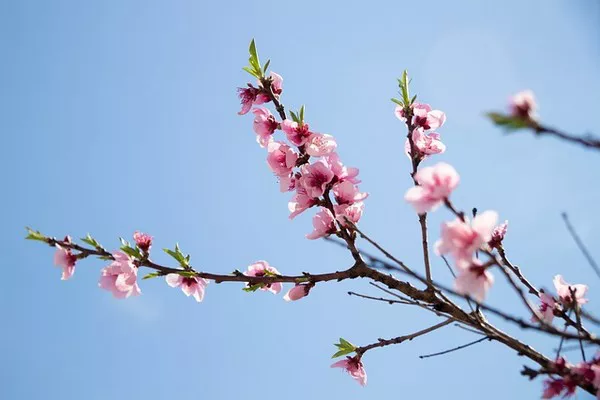Flowers have been a symbol of beauty, love, and appreciation for centuries. They brighten up our homes, lift our spirits, and add a touch of elegance to any occasion. However, when it comes to preserving their freshness, there is often confusion surrounding the best methods. One commonly debated topic is whether or not flowers should be placed in the refrigerator. In this comprehensive guide, we will delve into the factors that influence the decision and explore the pros and cons of refrigerating flowers.
The Science Behind Flower Preservation:
Before delving into whether or not to refrigerate flowers, it’s essential to understand the science behind their preservation. Flowers, once cut from their source, continue to undergo biological processes, albeit at a slower pace. Transpiration, a process by which water is lost from the flowers’ surface, is one of the primary mechanisms responsible for their wilting. Additionally, microbial growth and ethylene gas production can contribute to the deterioration of flowers.
Properly preserving flowers involves addressing these factors to slow down the aging process and prolong their beauty. Temperature, humidity, and exposure to light all play crucial roles in flower preservation.
The Pros of Refrigerating Flowers:
Extended Lifespan:
Refrigerating flowers can slow down their aging process significantly, leading to a longer vase life. The cooler temperature helps reduce the rate of transpiration, which helps the flowers retain their moisture and freshness for a longer duration.
Delaying Blooming:
If you have cut flowers that are not yet fully bloomed and you want to delay their opening for a special event or occasion, placing them in the refrigerator can be effective. The cool environment puts the flowers in a state of dormancy, postponing their full bloom.
Preservation of Pollen:
Some flowers have vibrant and beautiful pollen that can easily stain fabrics or tabletops. Refrigerating such flowers can help keep the pollen intact and prevent unwanted stains.
Preventing Pest Infestation:
Insects and pests can be a significant concern when it comes to fresh flowers. Refrigeration can help deter or slow down the activity of insects that might otherwise damage or feed on the flowers.
Maintaining Aroma:
Certain flowers are prized for their delightful fragrance. Refrigerating these flowers can help preserve their aroma for a longer time, allowing you to enjoy their pleasant scent for days.
The Cons of Refrigerating Flowers:
Ethylene Sensitivity:
Not all flowers respond well to refrigeration. Some are highly sensitive to ethylene gas, a naturally occurring plant hormone that promotes ripening and can accelerate the wilting of flowers. Flowers such as roses, tulips, and irises are particularly sensitive to ethylene and should not be refrigerated.
Condensation and Mold:
Refrigerators can be humid environments, and condensation can form inside the packaging or around the flowers, leading to mold growth. Mold can quickly spread and damage the flowers, affecting their longevity.
Damage from Food Odors:
Refrigerators are designed to store food items, and strong odors from fruits and vegetables can be absorbed by the flowers, impacting their fragrance and overall appeal.
Freezing Damage:
If flowers are exposed to extremely low temperatures or come into contact with frozen surfaces, their cells can be damaged, leading to wilting and browning upon thawing.
Loss of Vibrancy:
Some flowers, particularly those with delicate petals, may lose their vibrant colors and become discolored when refrigerated for extended periods.
Best Practices for Refrigerating Flowers:
If you decide to refrigerate your flowers, follow these best practices to maximize their lifespan and keep them in optimal condition:
1.Prepare the Flowers Properly: Before placing the flowers in the refrigerator, trim the stems at an angle and remove any foliage that might be submerged in water. Use clean vases or containers and fill them with fresh water.
2. Cover the Flowers: To protect the flowers from potential condensation and food odors, cover them loosely with a plastic bag or wrap.
3. Separate Flowers and Fruits: If you have fruits in your refrigerator, keep them away from the flowers to minimize ethylene exposure.
4. Regular Inspection: Check the flowers regularly for signs of wilting, mold, or any other issues. If you notice any problems, remove the affected flowers promptly to prevent the spread of issues to other blooms.
5. Remove from Refrigeration Gradually: When you are ready to display the flowers, take them out of the refrigerator and allow them to come to room temperature gradually. Avoid sudden changes in temperature, as they can cause shock to the flowers.
Alternative Flower Preservation Techniques:
If refrigeration is not an option or you have flowers sensitive to cold temperatures, there are alternative preservation techniques you can consider:
Fresh Water and Pruning: Change the water in the vase every two days and trim the stems at an angle to ensure water uptake. This practice helps to prevent bacterial growth and keeps the flowers hydrated.
Floral Preservatives: Commercial floral preservatives can be added to the water to provide essential nutrients and inhibit microbial growth, thus prolonging the vase life of the flowers.
Hydration Soaks: Before arranging the flowers in a vase, submerge their stems in room-temperature water for a few hours or overnight. This process allows the flowers to rehydrate fully before being displayed.
Misting: Lightly misting the flowers with water can help them retain moisture and maintain their freshness.
Conclusion:
Whether or not you should put flowers in the fridge depends on the type of flowers you have and your desired outcome. Refrigeration can be beneficial for extending the lifespan of certain flowers and delaying blooming. However, for flowers sensitive to cold temperatures or ethylene gas, alternative preservation techniques should be considered.
Remember to follow best practices when refrigerating flowers, such as covering them to prevent condensation and keeping them away from ethylene-producing fruits. Always inspect the flowers regularly and remove any damaged blooms promptly to ensure the longevity of the others.
Ultimately, proper care, attention, and knowledge of your specific flower type will help you make the best decision on how to preserve their beauty and enjoy their elegance for as long as possible.


